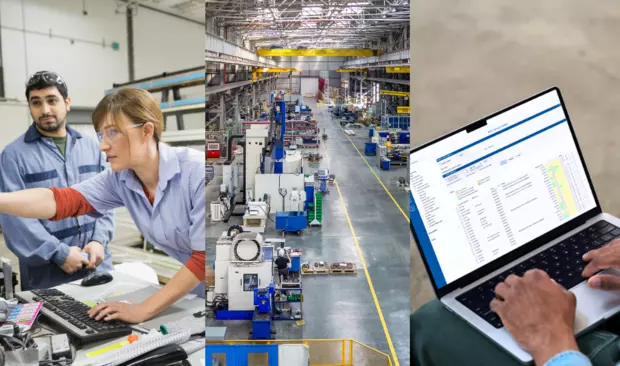The digital shift: How automation is revolutionising the manufacturing industry

Thanks to the power of automation, the manufacturing industry has undergone an incredible transformation in the last few years. Many small businesses have enthusiastically hopped on the digital bandwagon, making use of tools like ERP and MRP software to elevate their manufacturing operations to new levels.
As automation becomes more accessible, cost-effective, and user-friendly, let's dive into some specific examples of how these businesses are making strides:
Streamlined processes
Automation has the power to seamlessly handle and integrate key aspects such as production, inventory, sales, and finances all within a single system. By taking care of routine tasks like data entry, invoicing, and order processing, small businesses not only save time but also cut down on the chances of errors. This not only boosts efficiency but also gives employees the freedom to focus on more strategic tasks like innovation and customer service.
Did you know that 95% of businesses witness process improvements after implementing an ERP system?
Optimised resources
Automation also plays a crucial role in maintaining precision in demand forecasting, inventory management, and procurement processes. Businesses can significantly reduce wastage, allocate resources more efficiently, and ultimately save costs. This doesn't just streamline operations; it also enhances financial efficiency, allowing companies to allocate resources strategically, invest in innovation, and fuel business growth.
Check out how Versinetics revamped its manufacturing operations with Fortee ERP, achieving remarkable improvements in efficiency and productivity here.
Real-time data
Automation provides small businesses with the power of data-driven decision-making. With ERP and MRP automation, manufacturers have real-time insights at their fingertips. This data helps identify bottlenecks, monitor production efficiency, and swiftly adapt to changing market demands. Armed with up-to-the-minute information, small businesses can stay agile and responsive.
Enhanced quality control
Automation also steps in as a quality control maestro. Small manufacturers can use automated systems to consistently monitor and control product quality. Automated quality control systems reduce the margin for human error, leading to higher-quality products and happier customers.
Scaling operations with ease
As small manufacturers grow, automation makes scaling up a breeze. With the right systems in place, businesses can seamlessly add more machines, increase production capacity, and expand their market reach, all without the complications and chaos that manual operations might bring.
Cost savings and improved profit margins
Small businesses often operate on tight budgets. Automation comes to the rescue by reducing labour costs and minimising material waste, significantly boosting profit margins. By investing in automation, companies can channel their resources into innovation and business growth.
Start your journey with automation
Automation is reshaping the manufacturing landscape, with small businesses taking the lead in this digital revolution. ERP and MRP automation aren't just buzzwords but practical tools that transform small to medium-sized manufacturers into more efficient, competitive, and agile entities.
By simplifying processes, optimising resources, and providing real-time insights, automation propels small manufacturers to new heights, enabling them to compete on a global scale while maintaining their unique British identity.